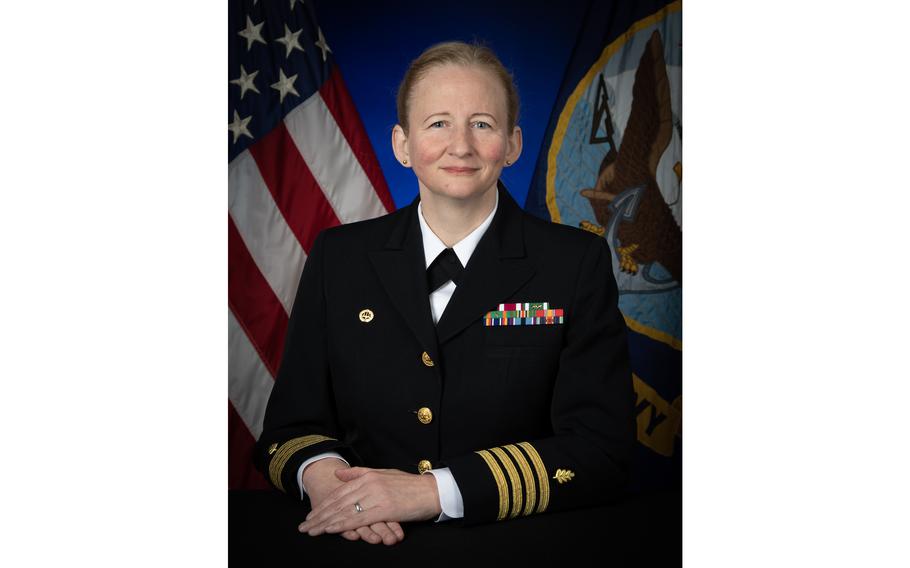
Capt. Abigail Yablonsky Marter, the commanding officer of Naval Medical Research Unit South, has been relieved due to a loss of confidence in her ability to command. (Sean Brennan/U.S. Navy)
Capt. Abigail Yablonsky Marter, the commanding officer of Naval Medical Research Unit South, has been relieved due to a loss of confidence in her ability to command. Marter is the sixth commanding officer to be relieved by the Navy this year.
Capt. Franca Jones, the commander Naval Medical Research Command, made the announcement Friday, according to a Navy news release. Cmdr. Michael Prouty will assume duties as acting commanding officer pending the assignment of a permanent commander. U.S. Naval Medical Research Unit (NAMRU) South is based in Lima, Peru.
Marter will be temporarily reassigned to Naval Medical Research Command. The news release did not include any specific information about why Marter was fired.
“Navy commanding officers are held to the highest standards of personal and professional conduct,” the Navy said in the news release. “They are expected to uphold the highest standards of responsibility, reliability, and leadership, and the Navy holds them accountable when they fall short of meeting these standards.”
Under federal privacy law, military officials are not required to disclose the reasons for removing or reassigning personnel. Military officials often cite “a loss of confidence” when commanders are removed from their posts without providing any specifics that led to the decision.
Marter assumed command of the unit in July 2023. Before that, she was Naval Medical Research Command’s deputy commander, according to her service biography. Her personal awards include the Meritorious Service Medal (2), the Navy and Marine Corps Commendation Medal (3), and the Navy and Marine Corps Achievement Medal (2).
Prouty was commissioned into the Navy in 2008, according to his service bio. His first duty station was the Naval Medical Research Center in Silver Spring, Md. He has been stationed in Lima since 2019 and has been executive officer of U.S. Naval Medical Research Unit South since 2022.
U.S. Naval Medical Research Unit (NAMRU) South researches and monitors various infectious diseases with military and public health implications in Central and South America, according to the Navy. Its research areas encompass malaria, dengue fever, diarrheal diseases and sexually transmitted infections, and it also monitors antimicrobial resistance.